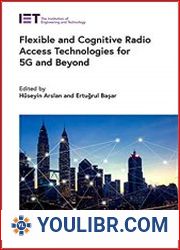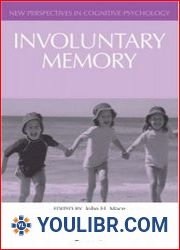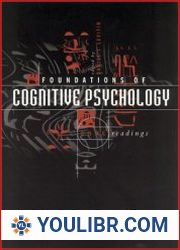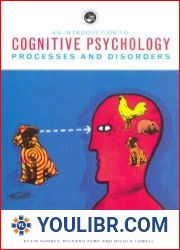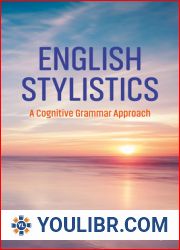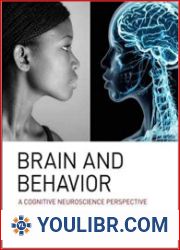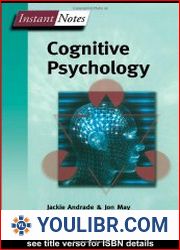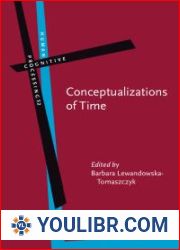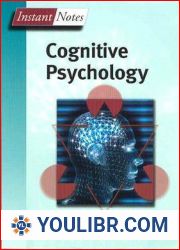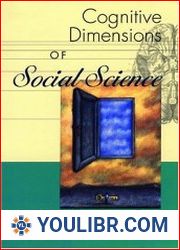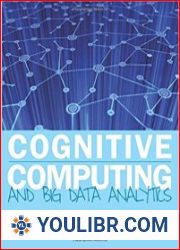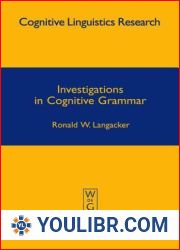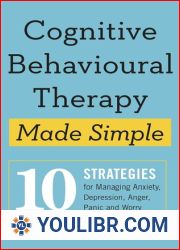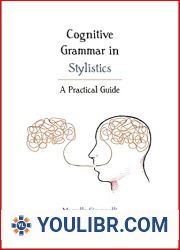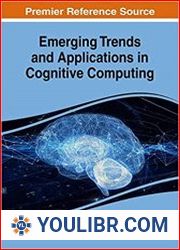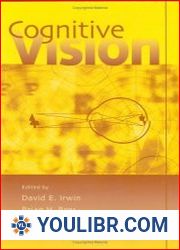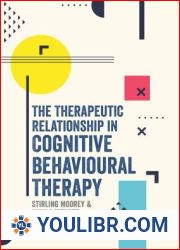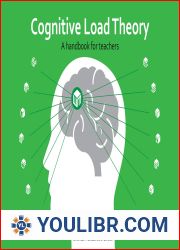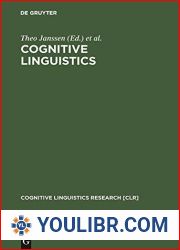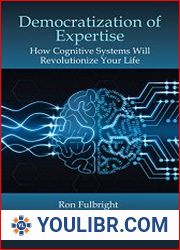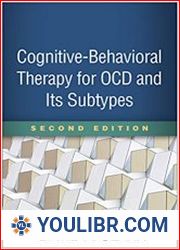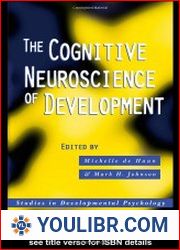
BOOKS - Whether to Kill: The Cognitive Maps of Violent and Nonviolent Individuals

Whether to Kill: The Cognitive Maps of Violent and Nonviolent Individuals
Author: Stephanie Dornschneider
Year: December 1, 2015
Format: PDF
File size: PDF 4.2 MB
Language: English

Year: December 1, 2015
Format: PDF
File size: PDF 4.2 MB
Language: English

Whether to Kill: The Cognitive Maps of Violent and Nonviolent Individuals In this groundbreaking book, author Stephanie Dornschneider delves deep into the minds of individuals who have resorted to either violent or nonviolent resistance against the state, exploring the intricate web of beliefs and motivations that drive their actions. Set against the backdrop of Islamist terrorism and Islamophobia, Whether to Kill offers a fresh perspective on the age-old question of why some individuals embrace violence while others opt for peaceful activism. The book begins with an overview of the current state of affairs in Egypt and Germany, two countries grappling with the challenges of extremism and political unrest. Dornschneider then introduces the concept of cognitive maps, which are mental frameworks that help us make sense of our surroundings and guide our decisions. She argues that understanding these cognitive maps is crucial to grasping the complex factors that influence an individual's choice between violence and nonviolence. To develop her theory, Dornschneider conducted extensive ethnographic interviews with both violent and nonviolent Muslims and non-Muslims in Egypt and Germany. These interviews revealed a staggering array of factors that contribute to an individual's decision to engage in political violence, from personal experiences and social environments to religious beliefs and ideological convictions.
Убивать ли: Когнитивные карты насильственных и ненасильственных людей В этой новаторской книге автор Стефани Дорншнайдер углубляется в умы людей, которые прибегли к насильственному или ненасильственному сопротивлению против государства, исследуя запутанную сеть убеждений и мотивов, которые управляют их действиями. Поставленная на фоне исламистского терроризма и исламофобии, книга «Стоит ли убивать» предлагает свежий взгляд на извечный вопрос о том, почему некоторые люди принимают насилие, в то время как другие выбирают мирный активизм. Книга начинается с обзора текущего положения дел в Египте и Германии, двух странах, борющихся с вызовами экстремизма и политических беспорядков. Затем Дорншнайдер вводит концепцию когнитивных карт, которые являются ментальными рамками, которые помогают нам осмыслить наше окружение и направлять наши решения. Она утверждает, что понимание этих когнитивных карт имеет решающее значение для понимания сложных факторов, которые влияют на выбор человека между насилием и ненасилием. Для развития своей теории Дорншнайдер провела обширные этнографические интервью как с насильственными, так и ненасильственными мусульманами и немусульманами в Египте и Германии. Эти интервью выявили ошеломляющее множество факторов, которые способствуют решению человека участвовать в политическом насилии, от личного опыта и социальной среды до религиозных убеждений и идеологических убеждений.
Tuer : Cartes cognitives des personnes violentes et non violentes Dans ce livre novateur, l'auteure Stephanie Dornschneider explore les esprits des personnes qui ont eu recours à la résistance violente ou non violente contre l'État en explorant le réseau confus de croyances et de motivations qui régissent leurs actions. Placé dans le contexte du terrorisme islamiste et de l'islamophobie, le livre « Faut-il tuer » offre un regard nouveau sur la question éternelle de savoir pourquoi certaines personnes acceptent la violence alors que d'autres choisissent l'activisme pacifique. livre commence par un aperçu de la situation actuelle en Egypte et en Allemagne, deux pays qui luttent contre les défis de l'extrémisme et des troubles politiques. Dornschneider introduit ensuite le concept de cartes cognitives, qui sont des cadres mentaux qui nous aident à comprendre notre environnement et à guider nos décisions. Elle affirme que la compréhension de ces cartes cognitives est essentielle pour comprendre les facteurs complexes qui influencent le choix d'une personne entre la violence et la non-violence. Pour développer sa théorie, Dornschneider a mené de vastes entretiens ethnographiques avec des musulmans et des non-musulmans violents et non violents en Egypte et en Allemagne. Ces entrevues ont mis en évidence les nombreux facteurs qui contribuent à la décision d'une personne de participer à la violence politique, de l'expérience personnelle et de l'environnement social aux croyances religieuses et idéologiques.
Matar: Mapas cognitivos de personas violentas y no violentas En este libro pionero, la autora Stephanie Dornschneider profundiza en las mentes de las personas que han recurrido a la resistencia violenta o no violenta contra el Estado, explorando una red confusa de creencias y motivaciones que rigen sus acciones. Ambientado en el trasfondo del terrorismo islamista y la islamofobia, el libro «Vale la pena matar» ofrece una mirada fresca a la pregunta perenne de por qué algunas personas aceptan la violencia mientras que otras optan por el activismo pacífico. libro comienza con una revisión de la situación actual en Egipto y Alemania, dos países que luchan contra los desafíos del extremismo y la agitación política. A continuación, Dornschneider introduce el concepto de mapas cognitivos, que son marcos mentales que nos ayudan a comprender nuestro entorno y guiar nuestras decisiones. Afirma que la comprensión de estos mapas cognitivos es crucial para entender los factores complejos que influyen en la elección de una persona entre violencia y no violencia. Para desarrollar su teoría, Dornschneider realizó extensas entrevistas etnográficas tanto con musulmanes violentos como no violentos y no musulmanes en Egipto y Alemania. Estas entrevistas revelaron una multitud abrumadora de factores que contribuyen a la decisión de una persona de participar en la violencia política, desde experiencias personales y entornos sociales hasta creencias religiosas y creencias ideológicas.
Matar: mapas cognitivos de pessoas violentas e não violentas Neste livro inovador, a autora Stephanie Dornschneider aprofunda-se nas mentes de pessoas que recorreram à resistência violenta ou não violenta contra o Estado, explorando uma rede confusa de crenças e motivações que guiam suas ações. Lançado em meio ao terrorismo islamista e à islamofobia, o livro «Vale a pena matar» oferece uma visão recente sobre o porquê de algumas pessoas aceitarem a violência, enquanto outras optam pelo ativismo pacífico. O livro começa com uma revisão da situação atual no Egito e na Alemanha, dois países que lutam contra os desafios do extremismo e dos distúrbios políticos. Em seguida, Dornschneider introduz o conceito de mapas cognitivos, que são marcos mentais que nos ajudam a compreender o nosso ambiente e guiar as nossas decisões. Ela afirma que compreender esses mapas cognitivos é fundamental para compreender os fatores complexos que influenciam a escolha humana entre a violência e a não violência. Para desenvolver sua teoria, Dornschneider realizou uma vasta entrevista etnográfica com muçulmanos violentos e não-violentos no Egito e na Alemanha. Estas entrevistas revelaram muitos fatores surpreendentes que contribuem para a decisão do indivíduo de participar da violência política, desde a experiência pessoal e o ambiente social até crenças religiosas e ideológicas.
Uccidere se: mappe cognitive di persone violente e non violente In questo libro innovativo, l'autrice Stephanie Dornschneider approfondisce le menti delle persone che hanno fatto ricorso alla resistenza violenta o non violenta contro lo Stato, esplorando la confusa rete di convinzioni e motivi che governano le loro azioni. Ambientato sullo sfondo del terrorismo islamista e dell'islamofobia, il libro «Vale la pena uccidere» offre una visione recente del perché alcune persone accettano la violenza, mentre altre scelgono l'attivismo pacifico. Il libro inizia con una panoramica della situazione attuale in Egitto e Germania, due paesi che combattono le sfide dell'estremismo e delle rivolte politiche. Dornschneider introduce poi il concetto di mappe cognitive, che sono cornici mentali che ci aiutano a comprendere il nostro ambiente e a guidare le nostre decisioni. Sostiene che la comprensione di queste mappe cognitive è fondamentale per comprendere i fattori complessi che influenzano le scelte umane tra violenza e non violenza. Per sviluppare la sua teoria, Dornschneider ha condotto ampie interviste etnografiche con musulmani violenti e non violenti e non musulmani in Egitto e Germania. Queste interviste hanno rivelato una serie impressionante di fattori che contribuiscono alla decisione dell'uomo di partecipare alla violenza politica, dall'esperienza personale e all'ambiente sociale fino alle convinzioni religiose e ideologiche.
Kill e: Kognitive Karten gewalttätiger und gewaltfreier Menschen In diesem bahnbrechenden Buch geht die Autorin Stephanie Dornschneider tief in die Köpfe von Menschen ein, die zu gewalttätigem oder gewaltfreiem Widerstand gegen den Staat gegriffen haben, und untersucht das verworrene Netzwerk von Überzeugungen und Motiven, die ihr Handeln bestimmen. Vor dem Hintergrund von islamistischem Terrorismus und Islamophobie bietet das Buch „Lohnt es sich zu töten“ einen frischen Blick auf die uralte Frage, warum manche Menschen Gewalt akzeptieren, während andere sich für friedlichen Aktivismus entscheiden. Das Buch beginnt mit einem Überblick über den aktuellen Stand der Dinge in Ägypten und Deutschland, zwei Ländern, die mit den Herausforderungen von Extremismus und politischen Unruhen zu kämpfen haben. Dornschneider führt dann das Konzept der kognitiven Karten ein, die den mentalen Rahmen bilden, der uns hilft, unsere Umgebung zu verstehen und unsere Entscheidungen zu leiten. e argumentiert, dass das Verständnis dieser kognitiven Karten entscheidend ist, um die komplexen Faktoren zu verstehen, die die Wahl einer Person zwischen Gewalt und Gewaltlosigkeit beeinflussen. Um ihre Theorie weiterzuentwickeln, führte Dornschneider umfangreiche ethnographische Interviews mit sowohl gewalttätigen als auch gewaltlosen Muslimen und Nicht-Muslimen in Ägypten und Deutschland. Diese Interviews enthüllten eine überwältigende Anzahl von Faktoren, die zur Entscheidung einer Person beitragen, sich an politischer Gewalt zu beteiligen, von persönlichen Erfahrungen und dem sozialen Umfeld bis hin zu religiösen Überzeugungen und ideologischen Überzeugungen.
Czy zabijać: Poznawcze mapy brutalnych i bezviolentnych ludzi W tej przełomowej książce autor Stephanie Dornschneider zagłębia się w umysły ludzi, którzy uciekali się do brutalnego lub niewolnego oporu przeciwko państwu, odkrywając zawiłe sieć wierzeń i motywacji rządzących ich działaniami. Na tle islamistycznego terroryzmu i islamofobii, Czy warto zabijać oferuje świeży wgląd w odwieczne pytanie, dlaczego niektórzy ludzie przyjmują przemoc, podczas gdy inni wybierają pokojowy aktywizm. Książka rozpoczyna się od przeglądu aktualnego stanu rzeczy w Egipcie i Niemczech, dwóch krajach borykających się z wyzwaniami ekstremizmu i niepokojów politycznych. Dornschneider wprowadza następnie koncepcję map poznawczych, które są ramami umysłowymi, które pomagają nam zrozumieć nasze otoczenie i kierować naszymi decyzjami. Twierdzi, że zrozumienie tych map poznawczych ma kluczowe znaczenie dla zrozumienia złożonych czynników wpływających na wybór jednostki między przemocą a niewirą. Aby rozwinąć swoją teorię, Dornschneider przeprowadziła obszerne wywiady etnograficzne z agresywnymi i nieagresywnymi muzułmanami i nie-muzułmanami w Egipcie i Niemczech. Wywiady te ujawniły oszałamiającą gamę czynników, które przyczyniają się do decyzji jednostki o zaangażowaniu się w przemoc polityczną, od osobistych doświadczeń i środowisk społecznych do wierzeń religijnych i ideologicznych.
''
Öldürüp Öldürmemek: Şiddet Yanlısı ve Şiddetsiz İnsanların Bilişsel Haritaları Bu çığır açan kitapta, yazar Stephanie Dornschneider, eylemlerini yöneten karmaşık inanç ve motivasyon ağını keşfederek, devlete karşı şiddet içeren veya şiddetsiz direnişe başvuran insanların zihinlerine giriyor. İslamcı terörizm ve İslamofobinin arka planında yer alan Öldürmeye Değer mi, bazı insanların neden şiddeti benimserken diğerlerinin barışçıl aktivizmi seçtikleri konusundaki asırlık soruya yeni bir bakış açısı sunuyor. Kitap, aşırıcılık ve siyasi huzursuzluğun zorluklarıyla boğuşan iki ülke olan Mısır ve Almanya'daki mevcut durumu gözden geçirerek başlıyor. Dornschneider daha sonra çevremizi anlamamıza ve kararlarımızı yönlendirmemize yardımcı olan zihinsel çerçeveler olan bilişsel haritalar kavramını tanıtır. Bu bilişsel haritaları anlamanın, bireyin şiddet ve şiddetsizlik arasındaki seçimini etkileyen karmaşık faktörleri anlamak için kritik olduğunu savunuyor. Teorisini geliştirmek için Dornschneider, Mısır ve Almanya'daki hem şiddet içeren hem de şiddet içermeyen Müslümanlarla ve gayrimüslimlerle kapsamlı etnografik görüşmeler yaptı. Bu görüşmeler, bir bireyin kişisel deneyimlerden ve sosyal ortamlardan dini inançlara ve ideolojik inançlara kadar siyasi şiddete girme kararına katkıda bulunan şaşırtıcı bir dizi faktörü ortaya çıkardı.
هل تقتل: الخرائط المعرفية للأشخاص العنيفين واللاعنف في هذا الكتاب الرائد، تتعمق المؤلفة ستيفاني دورنشنايدر في أذهان الأشخاص الذين لجأوا إلى مقاومة عنيفة أو غير عنيفة ضد الدولة، وتستكشف الشبكة المعقدة من المعتقدات والدوافع التي تحكم أفعالهم يقع Is It Worth Killing على خلفية الإرهاب الإسلامي وكراهية الإسلام، ويقدم نظرة ثاقبة جديدة حول السؤال القديم حول سبب اعتناق بعض الناس للعنف بينما يختار البعض الآخر النشاط السلمي. يبدأ الكتاب بمراجعة الوضع الحالي في مصر وألمانيا، وهما دولتان تتصارعان مع تحديات التطرف والاضطرابات السياسية. ثم يقدم Dornschneider مفهوم الخرائط المعرفية، وهي أطر عقلية تساعدنا على فهم محيطنا وتوجيه قراراتنا. وتقول إن فهم هذه الخرائط المعرفية أمر بالغ الأهمية لفهم العوامل المعقدة التي تؤثر على اختيار الفرد بين العنف واللاعنف. لتطوير نظريتها، أجرت دورنشنايدر مقابلات إثنوغرافية مكثفة مع كل من المسلمين العنيفين وغير العنيفين وغير المسلمين في مصر وألمانيا. كشفت هذه المقابلات عن مجموعة مذهلة من العوامل التي تساهم في قرار الفرد بالانخراط في العنف السياسي، من التجارب الشخصية والبيئات الاجتماعية إلى المعتقدات الدينية والمعتقدات الأيديولوجية.










